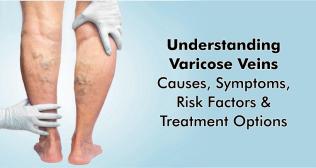
Nutraceuticals: Bridging Food and Medicine
For centuries, cultures around the world have embraced the idea that food can be a powerful form of medicine. The ancient Greek physician Hippocrates famously advised, "Let food be thy medicine and medicine be thy food." Today, modern science is catching up to this ancient wisdom, exploring the profound ways in which specific components of our diet can influence our health, prevent disease, and manage illness. This exciting field, which sits at the crossroads of nutrition and pharmaceuticals, is known as nutraceuticals.
Many of us are actively seeking ways to take control of our health that go beyond simply treating sickness. We want to be proactive about wellness, using natural sources to support our bodies' functions. Nutraceuticals tap directly into this desire, offering the promise of targeted health benefits derived from food, but delivered with a potency that can be difficult to achieve through diet alone.
What Exactly Are Nutraceuticals?
The term nutraceuticals, a blend of "nutrition" and "pharmaceuticals," was coined in 1989 by Dr. Stephen DeFelice. He defined it as a food, or parts of a food, that provide medical or health benefits, including the prevention and treatment of disease.
It is important to understand what sets them apart. A nutraceutical is not a whole food, like an apple you eat for its fiber and vitamins. It is also not a regulated pharmaceutical drug, like a prescription antibiotic. Instead, it occupies a unique space in between. It involves isolating and concentrating a specific beneficial compound from a food source and delivering it in a more potent, medicinal format. The goal is to harness the specific protective or physiological benefits of a food component in a targeted way.
The Main Categories of Nutraceutical Products
The world of nutraceutical products is vast and can be broken down into two main categories. Understanding this distinction can help you navigate the options available in pharmacies and health food stores.
Dietary Supplements
This is the category most people think of when they hear the term nutraceuticals. These are products designed to supplement the diet, containing one or more dietary ingredients. They are typically sold in medicinal forms like pills, capsules, powders, or liquids. The ingredients can include:
Vitamins and Minerals: Such as Vitamin D, calcium, or iron.
Herbs and Botanicals: Concentrated extracts from plants, like turmeric (curcumin), St. John's Wort, or Ginkgo biloba.
Amino Acids: The building blocks of proteins, such as L-theanine or creatine.
Specific Compounds: Isolated substances like glucosamine, chondroitin, Coenzyme Q10, or omega-3 fatty acids.
Functional Foods
Functional foods are whole foods that have been enhanced or fortified to provide an additional health benefit beyond their basic nutritional value. This can involve adding a new ingredient or boosting the level of an existing one. Examples are very common in the grocery store:
Milk fortified with Vitamin D to enhance calcium absorption and bone health.
Yogurt with added probiotics to support gut health.
Orange juice fortified with calcium for bone health.
Margarine enriched with plant sterols to help lower cholesterol.
Cereals with added fiber or psyllium to aid digestion.
In these cases, the food itself becomes the delivery system for the beneficial nutraceutical ingredient.
Exploring the Potential Health Benefits
The appeal of nutraceuticals lies in their potential to play a role in managing and preventing a wide range of health concerns. Research in this area is constantly evolving, but several categories have shown significant promise.
Supporting Heart Health
Cardiovascular health is one of the most well-researched areas. Omega-3 fatty acids, derived from fish oil, are widely studied for their ability to lower triglycerides and reduce inflammation. Soluble fibers, such as psyllium and beta-glucan from oats, can help lower LDL ("bad") cholesterol. Plant sterols and stanols, often added to functional foods, have also been shown to effectively reduce cholesterol absorption.
Aiding Joint and Bone Health
For those dealing with joint discomfort, nutraceutical products like glucosamine and chondroitin sulfate are popular choices, believed to help support cartilage health. For bone density, the combination of calcium and Vitamin D is a foundational nutraceutical approach to preventing osteoporosis.
Enhancing Gut and Digestive Wellness
The importance of the gut microbiome is a major area of health research. Probiotics, the "good" bacteria found in supplements and functional foods like yogurt, can help maintain a healthy balance in the digestive tract. Prebiotics, a type of fiber that feeds these good bacteria, are another crucial component of digestive health.
A Critical Look at Safety and Regulation
While the potential benefits are exciting, it is absolutely essential to approach nutraceuticals with a critical and informed mindset. This is because, in most countries including India and the United States, dietary supplements are not regulated with the same rigor as prescription drugs.
Pharmaceutical drugs must undergo years of strict clinical trials to prove they are both safe and effective before they can be sold. In contrast, supplement manufacturers are largely responsible for ensuring their own products are safe, and they do not have to prove effectiveness to the same standard. This regulatory gap can lead to several risks:
Lack of Standardization: The amount of the active ingredient can vary widely from batch to batch or between different brands.
Contamination: Some products have been found to be contaminated with heavy metals, pesticides, or even undeclared pharmaceutical drugs.
Drug Interactions: Many herbal nutraceuticals can interact dangerously with prescription medications. For example, St. John's Wort can reduce the effectiveness of birth control pills and antidepressants.
How to Be a Smart Consumer of Nutraceuticals
Given the risks, it is vital to be a savvy consumer. The goal is to reap the benefits while minimizing any potential harm.
Always Speak With Your Doctor First
This is the single most important step. Before you start taking any new supplement, have a conversation with your doctor or a registered dietitian. They can assess whether it's appropriate for you based on your health status, check for any potential interactions with medications you are taking, and recommend a proper dosage.
Look for Third-Party Verification
To ensure quality, look for products that have been voluntarily tested by an independent third-party organization. These groups test for purity, potency, and contaminants. Look for seals from organizations like USP (U.S. Pharmacopeia), NSF International, or FSSAI-approved labs in India. This adds a layer of assurance that what's on the label is what's in the bottle.
Do Not Substitute for a Healthy Lifestyle
Remember that supplements are meant to supplement a healthy diet, not replace it. No pill can undo the effects of a poor diet and sedentary lifestyle. The foundation of good health will always be a balanced diet, regular exercise, and adequate sleep.
The Future of Personalized Nutrition
Nutraceuticals represent a dynamic and promising area of health science. They offer a more personalized approach to wellness, allowing us to use targeted nutrition to support our bodies' unique needs and promote long-term health.
To navigate this landscape safely, it is essential to be an educated and cautious consumer. A thoughtful conversation with your healthcare provider is the best first step to determine if any specific nutraceutical products can play a beneficial role in your personal health journey.
Frequently Asked Questions
Q1. Are nutraceuticals the same as "natural" products?
Ans. While nutraceuticals are derived from natural food sources, the term "natural" is not regulated and can be misleading. A nutraceutical is a concentrated and processed component, which is different from the food in its whole, natural state. Always focus on the specific ingredient and evidence behind it, not just the word "natural."
Q2. Can I get all the benefits of nutraceuticals from just eating a healthy diet?
Ans. A healthy diet is the foundation and provides a wide array of nutrients that work together synergistically. However, in some cases, it can be difficult to get a therapeutic dose of a specific compound from food alone. For example, you would need to eat a very large amount of fatty fish to get the same dose of omega-3s found in a single supplement capsule.
Q3. How do I know if a health claim on a supplement bottle is trustworthy?
Ans. Be wary of products that promise a "miracle cure," rapid weight loss, or claim to treat a serious disease. Legitimate nutraceutical products will make claims about supporting normal body structure or function. Look for claims backed by scientific references and be skeptical of overly dramatic language.
Q4. Are nutraceuticals safe for children or pregnant women?
Ans. This is a critical question. Many nutraceuticals and herbal supplements have not been tested for safety in children, pregnant women, or breastfeeding mothers. It is absolutely essential to consult with a doctor before giving any supplement to a child or taking one during pregnancy.



















